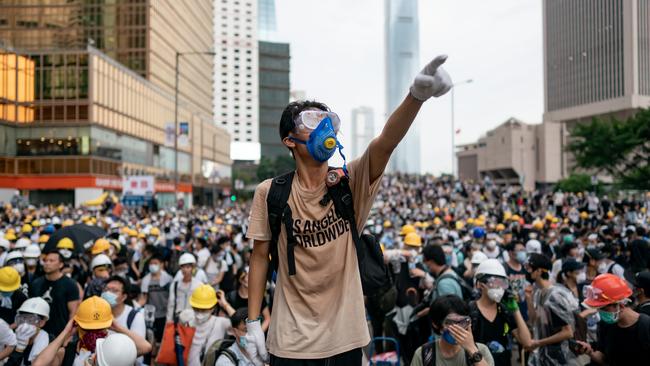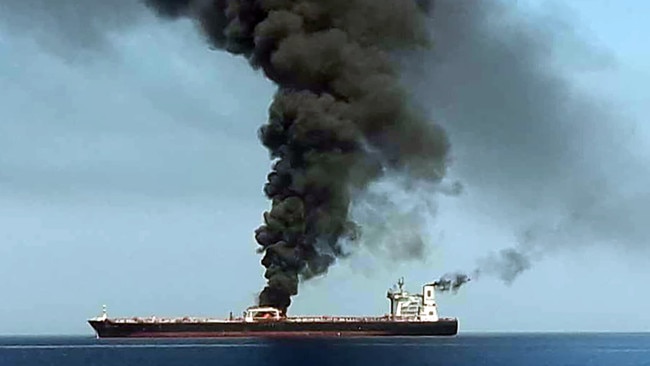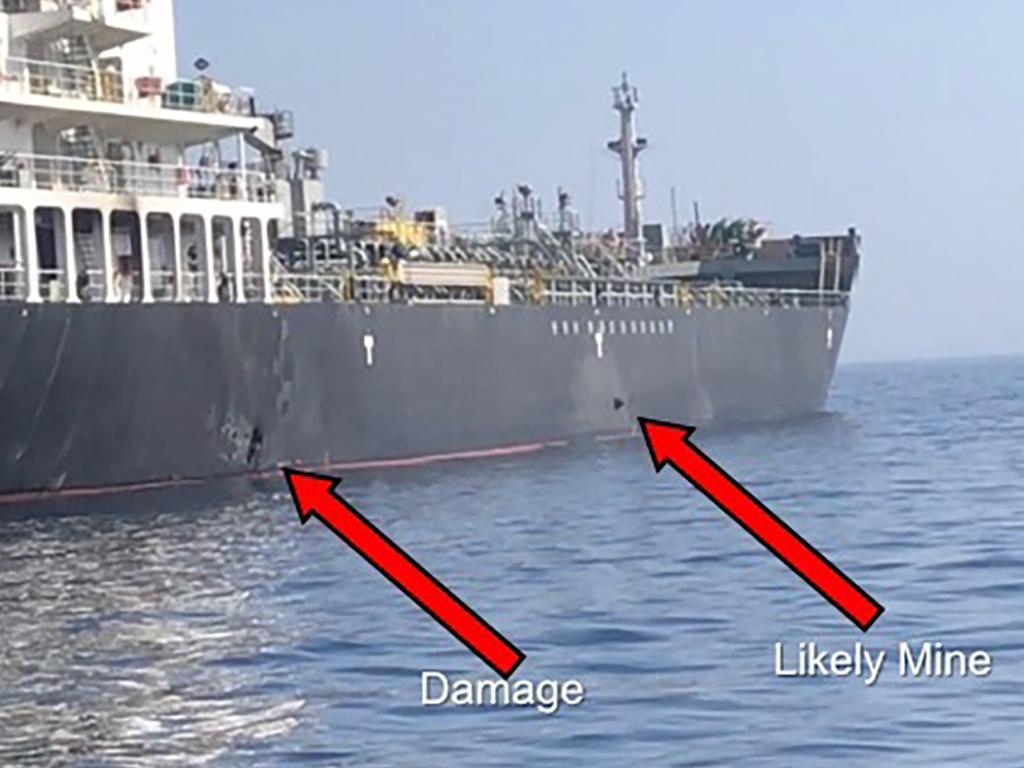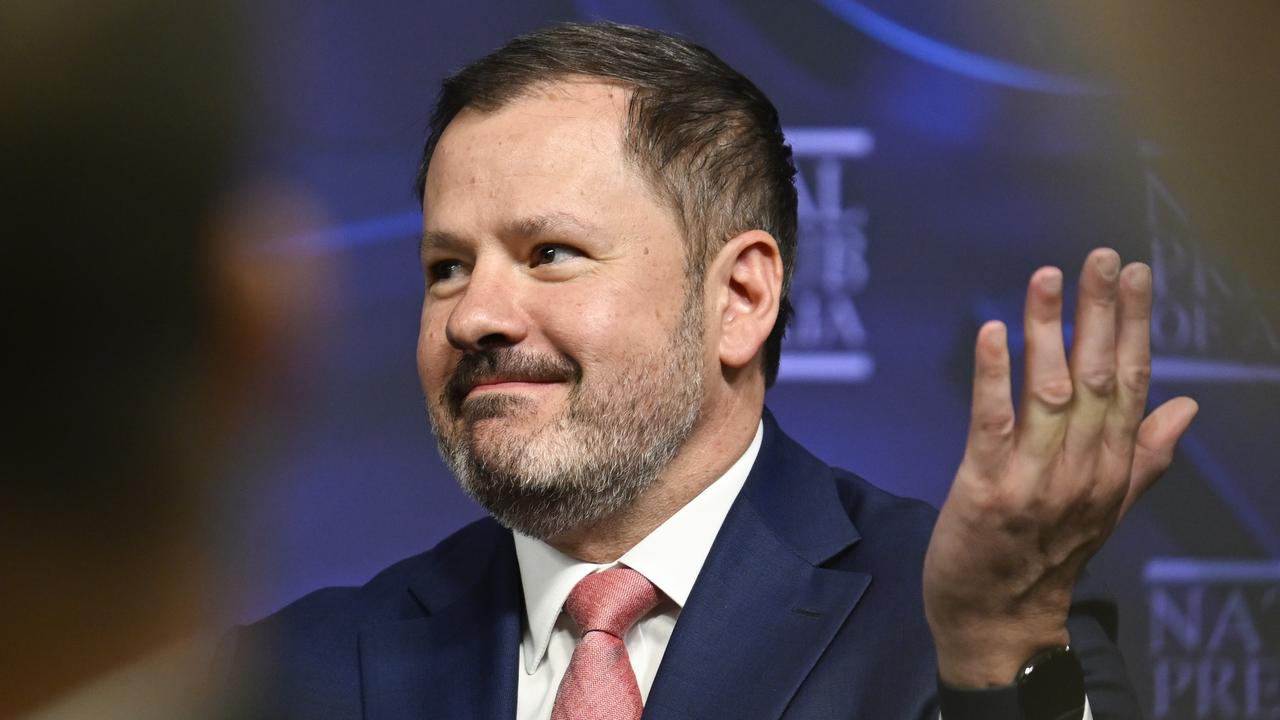
Suddenly the world has become higher risk ---- especially for Australia.
We are vulnerable to the repercussions of the riots and cyber attacks in Hong Kong while the failure of the oil price to skyrocket after the attacks on oil tankers in the Gulf of Oman shows that world growth is under great pressure.
The long-term implications of these events are being masked by the anticipation of lower interest rates, which boosts share prices.
And if the global game continues on the present course then the Australian dollar is vulnerable to further falls.
On the surface the riots in Hong Kong and the related Chinese cyber attack on Hong Kong communications are not of great Australian concern.
But if they continue, let alone escalate, then it will endanger Chinese tourism, education and capital investment in Australia.
Instead of staying on the sidelines we have put our flag on the side of the protesters. That makes us feel good but if the situation deteriorates our economy and dollar could suffer as the Chinese step back from Australia.
Of course, it is possible that the fear created in Hong Kong will trigger a rush of Hong Kong money into Australia. China will fight hard to stop that happening.
The tanker attacks convey a separate warning. The tankers were attacked (allegedly by Iran) near the Strait of Hormuz, which the world’s most important chokepoint for oil transit.
Instead of the oil price rising more than 10 per cent, as could have been expected, oil remains near its lows. While part of the reason is higher US production, what’s really driving the oil market is deteriorating demand caused by the elevated trade tensions and slowing global economic growth.
For the moment, at least, that is eclipsing the threat of a potential shooting war over oil.

While China is sluggish what is happening in the US is dramatic.
The Morgan Stanley Business Conditions Index slumped by 32 points in June-- it’s the largest one-month decline on record. The index stands at just 13 compared to 45 in May. The sharp deterioration extended across all sectors apart from the credit condition category, which held its ground on the back of lower interest rates.
In a further unprecedented development more than 600 companies and industry trade associations — including Walmart, Costco, Target, Gap, Levi Strauss and Foot Locker —have written to the White House urging President Trump to remove levies on China and end the ongoing trade war.
They say that tariffs on China will damage the US economy, lead to job losses and harm millions of consumers. They told the President: “Tariffs are taxes paid directly by US companies,” not China. “Tariff increases and uncertainty around these trade negotiations have created turmoil in the markets, threatening our historic economic growth.”
Over in China they are struggling too. In May the Chinese vehicle market—the world’s largest--- had its worst-ever monthly drop in automobile sales. Not surprisingly copper has been weak. Thankfully iron ore has done well, partly reflecting the situation in Brazil.
Even if there is some form of truce between the US and China, the US downward momentum has been established and history tells us these sorts of events are not reversed quickly.
The market expects both the Federal Reserve in the US and Australia’s Reserve Bank to lower interest rates. Given that rates are already so low, rate reductions help stock markets and some other asset prices but have only a marginal effect on the economy.
Meanwhile the oil attack and the China uncertainty increases the flow of money into US treasuries, taking market rates even lower and putting pressure on the Australian dollar.
In Australia we have had a post-election boost. Global events will make that momentum hard to maintain.




